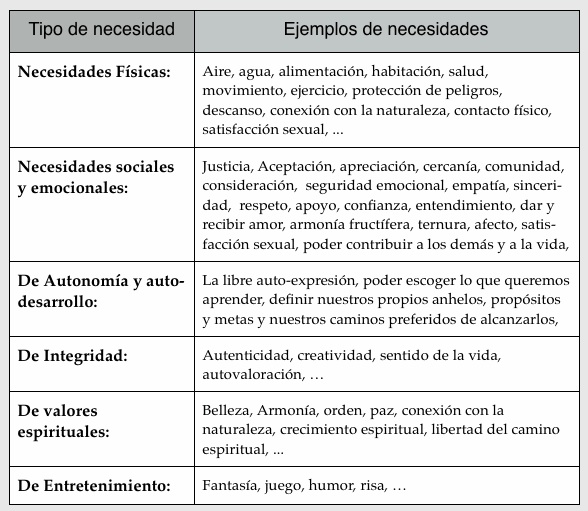“Comunicarse significa llegar con nuestro mensaje al otro.
A veces nos expresamos sin que el otro
pueda recibir nuestro mensaje tal como queremos.
Entonces hay expresión pero no hay comunicación.
Comunicación Consciente significa asegurar
que nuestro mensaje llegue al otro.“
La verdad es que todos queremos poder expresarnos auténticamente y sentirnos comprendidos. Queremos que la comunicación fluya fructíferamente en nuestras relaciones de pareja, entre padres e hijos y en grupos de trabajo.
En mi experiencia ha sido muy satisfactorio poder observar cómo la «Comunicación Consciente» ha ayudado a llevar conflictos destructivos a una relación de mayor comprensión y desarrollo mutuo.
Hay cuatro hechos de la comunicación entre seres humanos que nos olvidamos cuando entramos en conflictos destructivos. El siguiente artículo explica en forma breve esos hechos, que a su vez son los fundamentos de la Comunicación Consciente como método.
Los Cuatro Hechos de la Comunicación Consciente
1. Somos parecidos pero también diferentes
Cada uno de nosotros es un universo en sí con su propia mezcla de fortalezas y debilidades, con su propia historia de experiencias, con sus propios modos de moverse por la vida. A nadie se puede calificar o juzgar y pretender que se está describiendo su realidad tan única y compleja. Justamente por eso, porque los juicios no reflejan nuestra realidad, tenemos el impulso vital de defendernos de calificativos limitantes y juicios negativos. El encuentro entre seres humanos es fluido, honesto y satisfactorio cuando cada uno es consciente de este hecho fundamental y trata de ir conociendo y entendiendo al otro en toda su complejidad.
2. Compartimos la misma gama de necesidades
Nuestras necesidades son la base sobre cual sentimos y actuamos todos. Revisa la siguiente lista básica sintiendo cuales serían tus propias necesidades actuales:

3. Queremos contribuir mutuamente
Todos queremos contribuir a la vida de los demás; eso es parte de la naturaleza social del ser humano. Cuando sentimos que nuestra contribución es valorada y bien recibida, eso nos llena de satisfacción.
¡Pero ojo: solo podemos expresar esa calidad humana libremente y desde nuestra plenitud cuando confiamos que nuestras propias necesidades se van a cumplir! Cuando no sentimos esa confianza podemos entrar en una lucha uno contra el otro simplemente por buscar la satisfacción de nuestras necesidades, pensando que la única forma es la manipulación o dominación del otro.
4. La Comunicación Consciente lleva a la cooperación y mejora la calidad de vida
Todos compartimos las misma gama de necesidades del ser humano, cada uno poniendo énfasis actual en una de ellas. La mejor forma de satisfacer nuestras necesidades es la cooperación, cada uno contribuyendo a que las necesidades del otro se cumplan y juntos cooperando para ir creando una vida mejor.
La Comunicación Consciente nos ayuda a conscientizarnos, es decir: nos ayuda a dejar los juicios atrás y a darnos cuenta de lo que realmente estamos sintiendo a base de nuestras propias necesidades. También nos ayuda a tender el puente al otro. Es la mejor forma de ir conociéndose y entendiéndose para formar ese tejido de mutuo apoyo para salir adelante con una vida cada vez más plena y satisfactoria para todos.
***
Estos Cuatro Hechos son la base de la Comunicación Consciente como método. Los «Cinco Pasos» ayudan para ponerla en práctica. Para mas información sobre sesiones y cursos o para recibir este artículo en formato .pdf, escribe a: boletin.demian @ googlemail. com . Si tienes una observación o pregunta concreta, deja un comentario …

Responder a marcia Mediavilla Cancelar la respuesta
Lo siento, debes estar conectado para publicar un comentario.